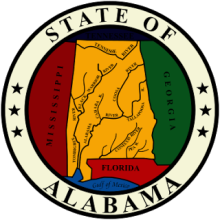
Alabama Republican State Senator Tom Whatley tried again this session to convince his colleagues that municipal utilities need the ability to expand beyond current coverage areas. Once again, his appeal to common sense for better connectivity fell on deaf ears.
Deja Vu
Whatley, representing the Auburn region, held fast to his promise to bring back a proposal like 2015’s SB 438. Early in February, he introduced SB 56, which stalled in the Senate Transportation and Energy Committee, unable to get a hearing. The bill eliminated limitations on both services offered and where municipal systems can offer those services.
In a January OANow article, Whatley explained that, once again, he was driven by the desire to improve economic development in Auburn:
On the local level, Sen. Tom Whatley, R-Auburn, is sponsoring two bills that he hopes will drive industry to and create jobs in Auburn and Opelika. An Internet availability bill would allow municipalities that offer their own high-speed [gigabit] Internet service, such as the city of Opelika, to expand and offer it in other areas, such as in Auburn and Russell or Tallapoosa counties, which are not eligible for [gigabit] service through private Internet companies.
“The [gigabit] service is something that businesses look for,” Whatley said, adding industries look at [gigabit] Internet the way they do school systems and water and sewer before moving their business into a city. “It’s an economic development tool.”
To Spread The Wealth
Opelika is proof positive in Alabama that municipal networks spur economic growth. Since deploying their Gigabit per second (Gbps) Fiber-to-the-Home (FTTH) network, the community has experienced significant growth, a number of awards, and local subscribers love the service they get from Opelika Power Services (OPS).
OPS would like to offer the same fast, affordable, reliable high-quality Gigabit connectivity to nearby Auburn, but the state’s restrictions prevent expansion. From a February OANow article on SB 56:
“We have an obligation to serve our citizens, but we can’t go across the street into Auburn. We can’t go across the street into the county. You’ve got some folks in the county who are literally in a digital desert,” [Opelika Mayor Gary] Fuller said. “The Opelika City Schools have a gig of Internet speed. Auburn does not have a gig of speed. We’d love to serve not only Auburn City Schools, but also Auburn University with ultra high-speed Internet.”…
“[The network is] owned by the citizens, just like the power company. The power company has been owned by the citizens for over 100 years,” Fuller said…
“We just want to offer our service to folks who don’t have service or inadequate service or less-than-ideal service…Sen. Whatley has been our champion on this.”
Mayor Fuller told OANow that he was ready to testify before the Transportation and Energy Committee but no hearing was ever scheduled before the session ended on May 4th.
An Easy Fix
With the Appellate Court considering the FCC’s reversal of state limitations in Tennessee and North Carolina, there is a chance that Sen. Whatley may not need to continue to press his colleagues for changes in state law. Rather than depending on federal intervention to set things right, however, state leaders have the opportunity to restore local authority now.
Sen. Whatley has the right idea - let communities make their own connectivity decisions by removing state barriers.







